Handmade Lolita: How to start sewing your own clothes?
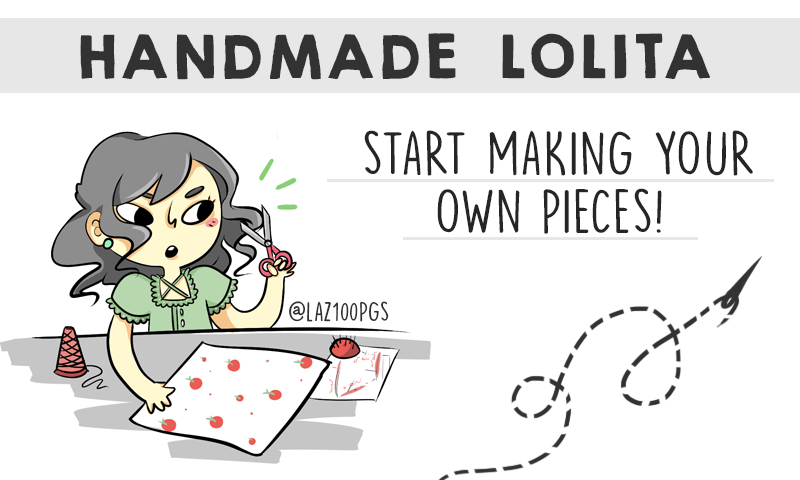
Ever wanted to venture out into the world of handmade lolita pieces? Well, now it’s your chance. Grab your seat, pick your favourite tea blend and let’s learn a little about making your own pieces.
Why go with Handmade Lolita?
The standard answer for this question might be related to the price: making your own clothes *can* be cheaper than buying brand new pieces directly from Japan, but bear in mind that, depending on the material you use, and the time spent making your clothes, your handmade might end up far more expensive than branded clothes.
Handmade Lolita might have more to do with the possibility of having a one of a kind piece that fits you perfectly than saving money in this fashion.
Of course, the reason as to why someone chooses to sew their own clothes will differ from person to person, but you’ll usually hear this:
- Cheaper than buying Branded pieces (which is not always true);
- Finding something that fits you;
- Having an exclusive piece in your wardrobe;
- Sewing as a hobby;
- Experimenting with different designs and fabrics;
- Designing your own prints;
- Needing a piece ASAP for a meeting.
I started sewing my own pieces because I really love to draw and design clothes, so nowadays my wardrobe is mostly filled with handmade.
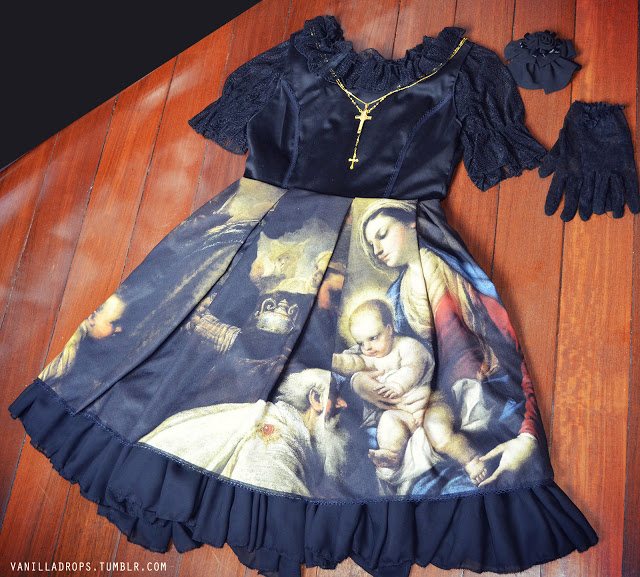
Example of a dress I made for myself.
And last, but not least, sewing is a wonderful hobby! It can be stressful sometimes, but the feeling of having something ready and made all by yourself is very rewarding.
What you’ll need
So, what will you need to start sewing? First of all, patience. Loads of that.
Also, I’d suggest you to get a sewing machine to make everything easier. If you simply can’t afford one, it’s still possible to make your own pieces. The difference is that sewing by hand requires more skill, more practice and far more patience than when using a machine. But well, it’s doable.
Anyway, if it’s your first time sewing, try buying a discounted sewing Kit. These usually come with scissors, pins, different types of needles, measuring tools etc. for you to try, so you can get the hang of it before investing more money.
Also, getting some beginner’s sewing patterns to try out is highly advisable, but not imperative. If you can’t buy an old Gothic and Lolita Bible, Otome no Sewing or Gosu Rori edition, try visiting your local book store to find pattern magazines like Burda, for example. These usually come packed with all level patterns and tips for you to start. Searching around the internet may also prove useful when searching for new patterns to experiment, so feel free to choose the option that suits you best.
Let me summarize it. To start sewing you’ll need:
- Patience;
- Sewing machine;
- Thread and needles;
- Scissors;
- Good Pins;
- Seam ripper;
- Measuring tools;
- Marking tools and/or chalks;
- Fabrics;
- Patterns (optional).
Study the Fashion
So, now that I have all the tools, can I start sewing?
No!
A good seamstress is not always a good Lolita Fashion seamstress, don’t forget that. In order to avoid making pieces that won’t fit a petti, or using fabrics that won’t match your branded pieces, try studying more about the fashion beforehand.
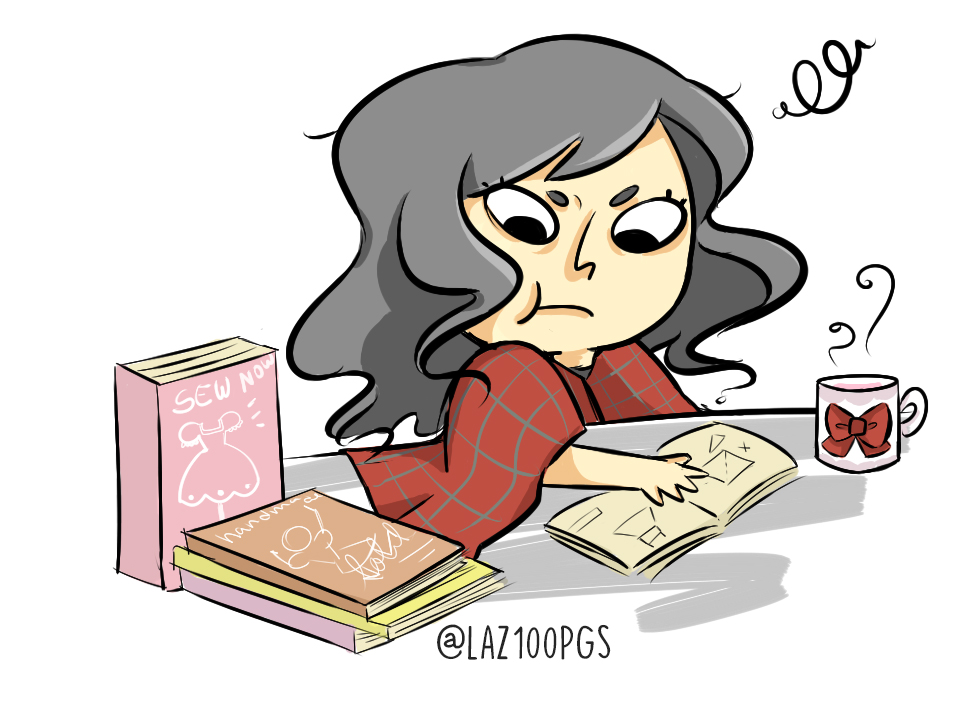
That does not mean that you have to be THE specialist in Lolita fashion, but in order to make good handmade lolita pieces it’s prudent to browse magazines, shops, communities, books, online groups, blogs, social media etc.
Which fabrics does your favourite brand use? What’s the difference between A-line and cupcake skirts? Which shapes can your dresses have? What colours are appropriate in the substyle of your preference? What is a no-no in Lolita?
Knowing these things might help you around the fashion and, of course, sewing for this fashion.
Studying a little bit of history might also help, specially when thinking about the ideal cut or design for your dresses. Try getting to know a little more about Victorian, Baroque, Edwardian and Rococo fashion periods. While some may not be directly related to the type of clothing you’re going to make, it’s undeniable that these pose as great reference resources for you.
Books on sewing are also a great thing to invest on! Try checking your local bookstore for basic sewing manuals and couture sewing guides to step up your skills.
Learn about fabrics
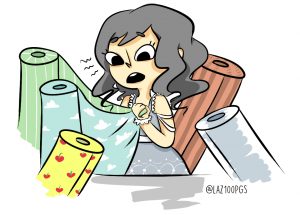
A long time ago there was this myth that Lolita pieces could only look good when made on pure cotton fabric.
While it’s true that a lot of popular brands still make their pieces on 100% cotton, it’s also true that most of them started to use synthetic fabrics like chiffon on their main pieces (I have some old pieces from Moitie that are made of oxford, a 100% synthetic fabric that’s usually used on school uniforms).
Learning about fabrics is something VERY important when you decide to go down the handmade Lolita road, and this can show the difference between a beginner piece and a professional piece.
The rule of thumb is: excessively cheap fabric won’t do.
I know this may sound obvious, but it’s quite common to find pieces made out of cheap satin or bedsheet fabric. These fabrics don’t really help the overall look of your piece, so I’d suggest trying alternatives like silk (even synthetic ones) or crepe, for example, if you really want that shiny aspect of the satin.
I usually like to go with soft cottons or blended cottons to make my basic pieces. Below you can see an example of a pure cotton piece (left) and a chiffon piece (right). Both handmade.
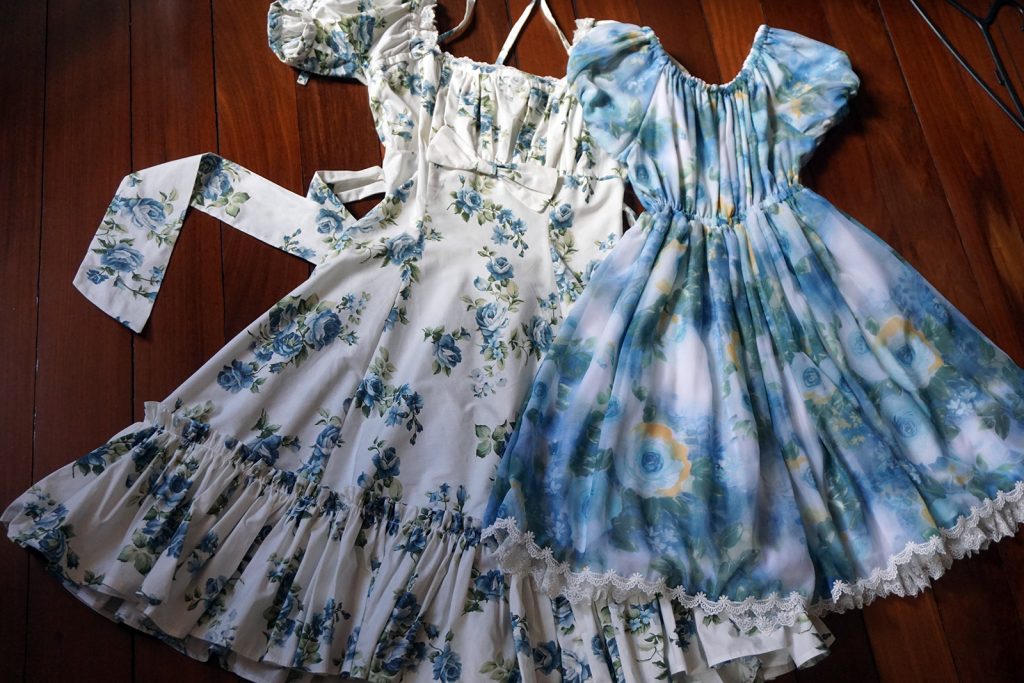
I know it’s difficult to understand the differences through the screen, so, my suggestion is: go to a fabric store nearby and try feeling all the fabrics around there! Don’t get anything that seems itchy or too rough. Get a fabric that feels good against the skin and with a nice pattern.
Learning about fabrics is something that takes time, so start experimenting and reading more about it as soon as possible!
Start with basic pieces
So, now that you’ve got an idea on how to handle fabrics, let’s start by choosing what you’ll be sewing first.
It’s best to start with something simple that will allow you to exercise the basics of sewing. Skirts and hair accessories are great options, so start by drawing the piece and writing down all the needed materials.
There are infinite possibilities for you to try, but browsing brands, blogs and shops might help you visualize what might be doable for your first piece.
If you’re thinking of sewing a skirt, for example, it’s important to consider some variations that won’t demand too much of your skills:

1) BLACK PEACE NOW 2) metamorphose 3)BTSSB 4) BTSSB
This pink metamorphose skirt is a great option for your first piece: it consists of a gathered rectangle attached to a piece of fabric with elastic. You can add all the laces and decorations you want to make your piece unique, but first, focus on getting a nice finishing and construction.
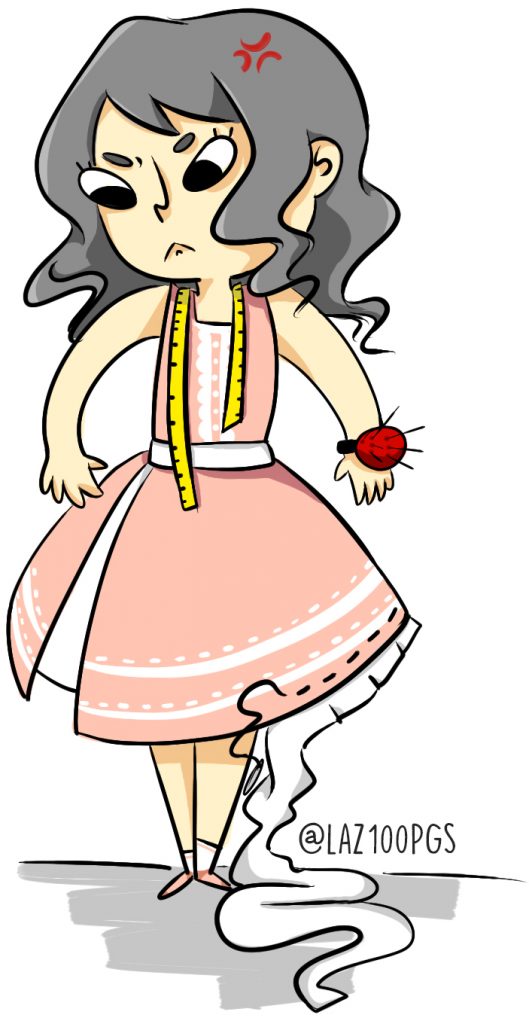
It won’t be easy on the beginning, but practice makes perfect, don’t forget it. Ever.
If you want to develop your sewing skills whilst making lolita pieces, I’d suggest following this roadmap:
- Headpieces
- Skirt
- Bags and other accessories
- JSK
- Blouse
- OP
Headpieces usually consists of rectangle pieces with some decorations on top, while Blouses and OPs usually require a lot more dedication with the details and fitting.
Of course there are headpieces more complex than blouses out there, but you don’t need to worry about them right now. Try to focus on what you can do and keep experimenting with patterns and designs that you see fit.
If something ever seems impossible to be done (and sometimes you WILL feel like it), try reaching a fellow seamstress or online groups to ask for advice. This is an important step to improve your skills!
If you don’t have a local sewing group, I’d suggest joining the Lolita Sewing Collective on Facebook. It’s an active community (more than 2200 members!) with many seamstresses and enthusiasts ready to help!
Be proud
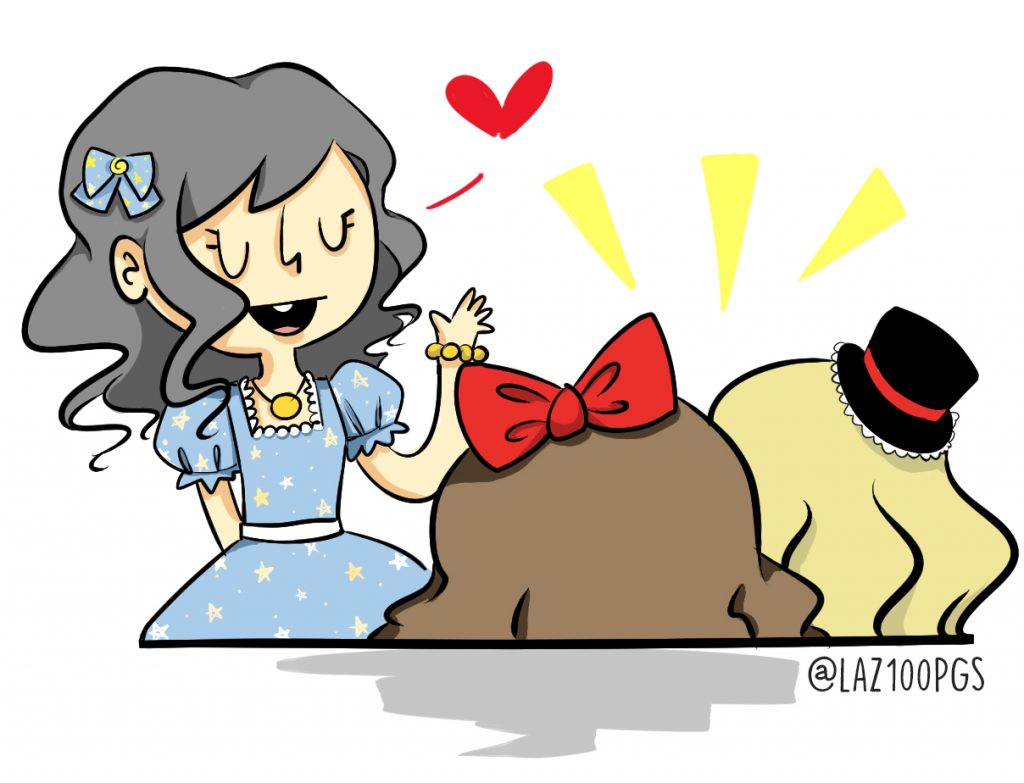
It’s not rare to find people saying that “handmade is inferior” or “it’s impossible for a handmade piece to look good” around the internet, but pay no mind. Sewing your own clothing is something you should be proud of. It won’t be perfect on your first or second try, but eventually you’ll learn how to deal with the fabric and designs in order to make something perfect for your body.
Don’t be afraid to brag about your pieces: you made them, and that’s amazing! Most people nowadays can’t even sew a button, so don’t hide your handmade lolita away. Wear them and show off!
Don’t forget to always ask for criticism and don’t forget that there’ll always be room for improvement.
If you need a challenge, try making a full coord out of handmade pieces. I’m sure you’ll be proud of yourself at the end of it!
Useful resources
Ok, so here are some resources for those who really want to try sewing.
Magazines:
- Gothic and Lolita Bible
- Gosu Rori
- Otome no Sewing Series
- COS sewing – Heart Warming Life Series
Blogs:
Websites:
So, what about starting your pieces now? Don’t forget that practice is your best friend when striving for the perfect handmade lolita piece! <3
27-years-old Brazilian, trying to survive with a black and navy wardrobe during the summer. I work as a freelancer writer in fashion, games and education. During my free time I enjoy sewing, writing fiction, drawing and, of course, playing lots of video game.




